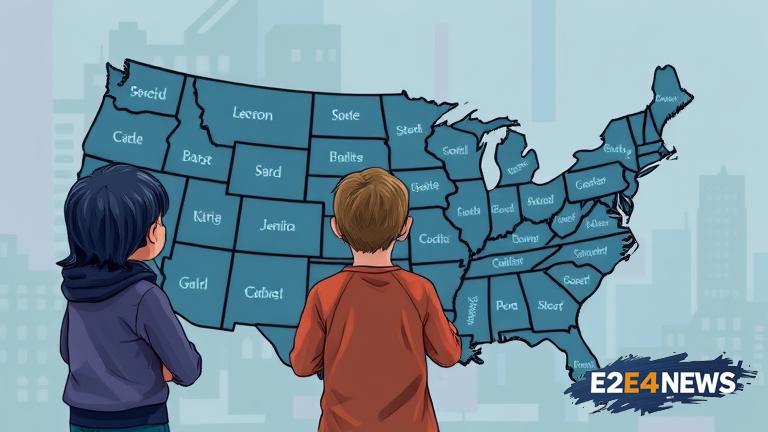In a groundbreaking move, 44 US state attorneys general have joined forces to address the growing concern of artificial intelligence (AI) posing a threat to children’s well-being. The coalition, led by the National Association of Attorneys General, has issued a stern warning to AI companies, emphasizing that they will be held accountable if their products or services cause harm to minors. This unprecedented collaboration demonstrates the commitment of state attorneys general to safeguarding children from the potential risks associated with AI. The warning comes as AI technology becomes increasingly prevalent in various aspects of life, from social media and online gaming to education and entertainment. While AI has the potential to bring numerous benefits, it also raises concerns about its impact on children’s physical, emotional, and mental health. The state attorneys general are particularly concerned about the potential for AI to facilitate the spread of misinformation, promote unhealthy behaviors, and compromise children’s privacy. They are also worried about the lack of transparency and accountability in the development and deployment of AI systems. The warning letter, sent to AI companies, emphasizes the importance of prioritizing child safety and well-being in the design and implementation of their products and services. The state attorneys general are urging AI firms to take proactive steps to prevent harm to children, including implementing robust age verification measures, providing clear and concise information about their products and services, and ensuring that their AI systems are transparent and explainable. The coalition is also calling on AI companies to collaborate with parents, educators, and healthcare professionals to develop guidelines and best practices for the safe and responsible use of AI in children’s lives. Furthermore, the state attorneys general are threatening to take legal action against AI companies that fail to comply with their warnings, citing a range of laws and regulations that protect children’s rights and interests. This includes the Children’s Online Privacy Protection Act (COPPA), the Federal Trade Commission (FTC) guidelines on AI and consumer protection, and state-specific laws governing child safety and well-being. The move has been welcomed by child advocacy groups and experts, who have long been warning about the potential risks of AI to children. They argue that the lack of regulation and oversight in the AI industry has created a Wild West environment, where companies are free to develop and deploy AI systems without adequate consideration for their impact on children. The state attorneys general’s warning is seen as a crucial step towards creating a safer and more responsible AI ecosystem, where children’s rights and interests are protected and prioritized. As the use of AI continues to grow and evolve, it is likely that we will see more efforts to regulate and oversee the industry, particularly when it comes to protecting children. The state attorneys general’s initiative is a significant development in this regard, and it will be interesting to see how AI companies respond to the warning and what steps they take to prioritize child safety and well-being. In conclusion, the warning issued by the 44 US state attorneys general is a clear indication that the AI industry is under scrutiny, and companies that fail to prioritize child safety and well-being will face consequences. As the AI landscape continues to evolve, it is essential that companies, policymakers, and stakeholders work together to create a safe and responsible environment for children to thrive in. The future of AI depends on it, and the state attorneys general’s warning is a crucial step towards achieving this goal. The warning has also sparked a broader debate about the need for greater regulation and oversight of the AI industry, particularly when it comes to protecting children. While some argue that regulation could stifle innovation and hinder the development of AI, others argue that it is essential to prevent harm and ensure that AI is developed and deployed in a responsible and safe manner. As the debate continues, it is clear that the state attorneys general’s warning has marked a significant turning point in the conversation about AI and child safety. The move has also highlighted the importance of collaboration and cooperation between policymakers, industry leaders, and stakeholders to address the complex challenges posed by AI. By working together, we can create a safer and more responsible AI ecosystem that prioritizes child safety and well-being, while also promoting innovation and growth. The state attorneys general’s warning is a powerful reminder that the protection of children’s rights and interests is a collective responsibility, and that we must all work together to ensure that AI is developed and deployed in a way that benefits society as a whole.
